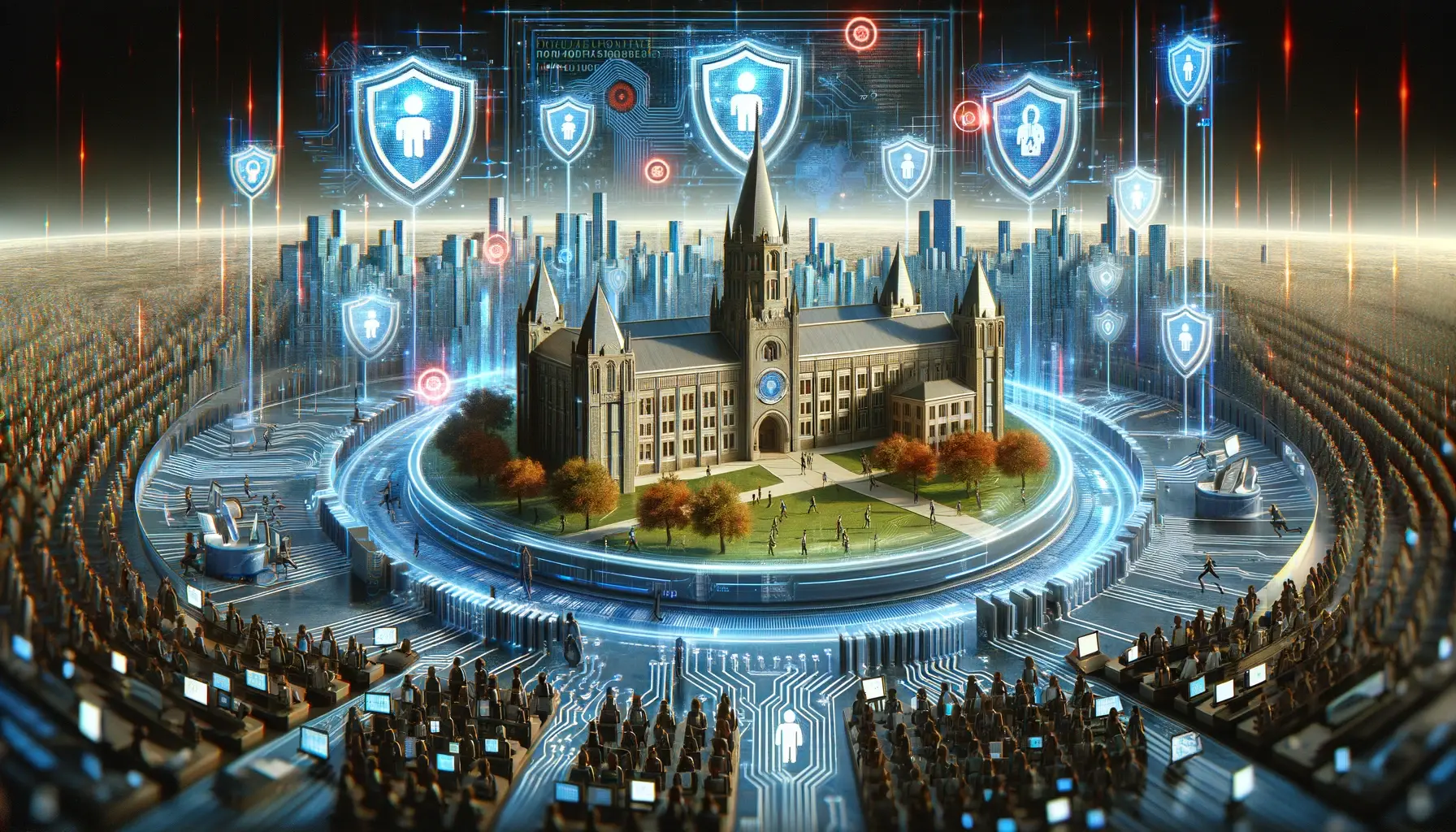3 min read
Ransomware: Why a Cybersecurity Bootcamp Can Equip You to Fight Back?
Imagine waking up to the chilling message: "Your files are encrypted. Pay the ransom, or lose them forever." This isn't a dystopian movie plot; it's...
2 min read
 The Amazing Team at Force One
:
May 23, 2024 10:20:50 AM
The Amazing Team at Force One
:
May 23, 2024 10:20:50 AM
The Cybersecurity Bachelor's Degree: Shaping Guardians of the Digital Age
Introduction:
In today's interconnected world, defending against cyber threats has become paramount. This ever-changing landscape requires skilled professionals who can protect our increasingly digitized lives. Enter the Cybersecurity Bachelor's Degree. A comprehensive program designed to equip graduates with the knowledge and skills needed to safeguard individuals, organizations, and governments against cyber threats. This article explores the definition, history, importance, current trends, challenges, solutions, and future prospects of pursuing a Cybersecurity Bachelor's Degree.
Definition:
Cybersecurity is the practice of protecting computer systems, networks, and data from digital threats. Cyber threats encompass a wide range of activities, including hacking, identity theft, system breaches, and malware attacks. A Cybersecurity Bachelor's Degree is an undergraduate program that develops students' technical and analytical skills related to identifying, mitigating, and preventing these threats.
History:
Cybersecurity traces its roots back to the early days of computer systems and networks. As the internet grew and became an integral part of our lives, the need for cybersecurity measures became apparent. The Morris Worm of 1988, considered the first significant cyberattack, highlighted the vulnerabilities of connected systems. In response, educational institutions began offering cybersecurity programs to meet the growing demand for skilled professionals.
Importance:
In an era predominantly reliant on digital technologies, the importance of cybersecurity cannot be overstated. Cyberattacks can result in financial losses, breaches in privacy, and even disrupt essential services. Organizations across industries require cybersecurity experts to safeguard their data while individuals need protection against identity theft and other personal attacks. Effective cybersecurity measures are vital to maintaining trust in online transactions, securing critical infrastructure, and preserving national security.
Current Trends:
The field of cybersecurity is constantly evolving, with new trends emerging to meet the challenges posed by increasingly sophisticated cyber threats. These trends include:
1. Artificial Intelligence (AI) - AI is being used to enhance cyber defenses by automating threat detection, and response.
2. Internet of Things (IoT) Security - As IoT devices become more prevalent, securing them against cyber threats becomes crucial to protect individuals and businesses.
3. Cloud Security - The migration of data to the cloud requires robust security measures to protect against breaches and unauthorized access.
4. Data Privacy - With the emergence of privacy regulations such as the GDPR, cybersecurity professionals must ensure that data is handled securely and compliantly.
Challenges:
Despite the advances in cybersecurity, challenges persist. The rapid growth of technology often outpaces security measures, providing hackers with new vulnerabilities to exploit. Moreover, the cybersecurity industry suffers from a shortage of skilled professionals to adequately address the ever-increasing threat landscape. Additionally, cyber criminals are continuously evolving their tactics, necessitating a constant cycle of innovation among cybersecurity experts to stay one step ahead.
Solutions:
To counter these challenges, comprehensive cybersecurity education programs, such as the Cybersecurity Bachelor's Degree, provide students with a solid foundation in technical skills, programming languages, risk assessment, and ethical frameworks. Hands-on experiences through real-world projects and internships offer practical exposure to cutting-edge tools, techniques, and best practices. Collaboration between academia, industry, and governments is essential to develop and enforce cybersecurity standards, share threat intelligence, and bridge the skills gap.
Future Prospects:
The future of cybersecurity looks promising, with tremendous career opportunities on the horizon. The demand for cybersecurity professionals is expected to grow exponentially in the coming years as organizations realize the importance of securing their digital assets. Roles such as Security Analysts, Penetration Testers, and Ethical Hackers will be highly sought after. Additionally, the rise of emerging technologies such as Artificial Intelligence, Machine Learning, and Blockchain will create new avenues for cybersecurity professionals to shape the future of digital security.
Conclusion:
As the digital landscape continues to expand, the need for cybersecurity professionals becomes more critical than ever. A Cybersecurity Bachelor's Degree equips graduates with the knowledge, skills, and practical experience necessary to safeguard individuals, organizations, and governments against cyber threats. By staying updated with current trends, overcoming challenges, and innovating solutions, cybersecurity professionals will play a pivotal role in shaping a secure digital future.

3 min read
Imagine waking up to the chilling message: "Your files are encrypted. Pay the ransom, or lose them forever." This isn't a dystopian movie plot; it's...

2 min read
Cybersecurity Degree Online: Safeguarding the Digital WorldIn today's hyper-connected world, where digital information is at the core of businesses,...

3 min read
Exploring the Risks of Mobile Device Security Mobile devices have become an integral part of our daily lives, but they also pose significant security...